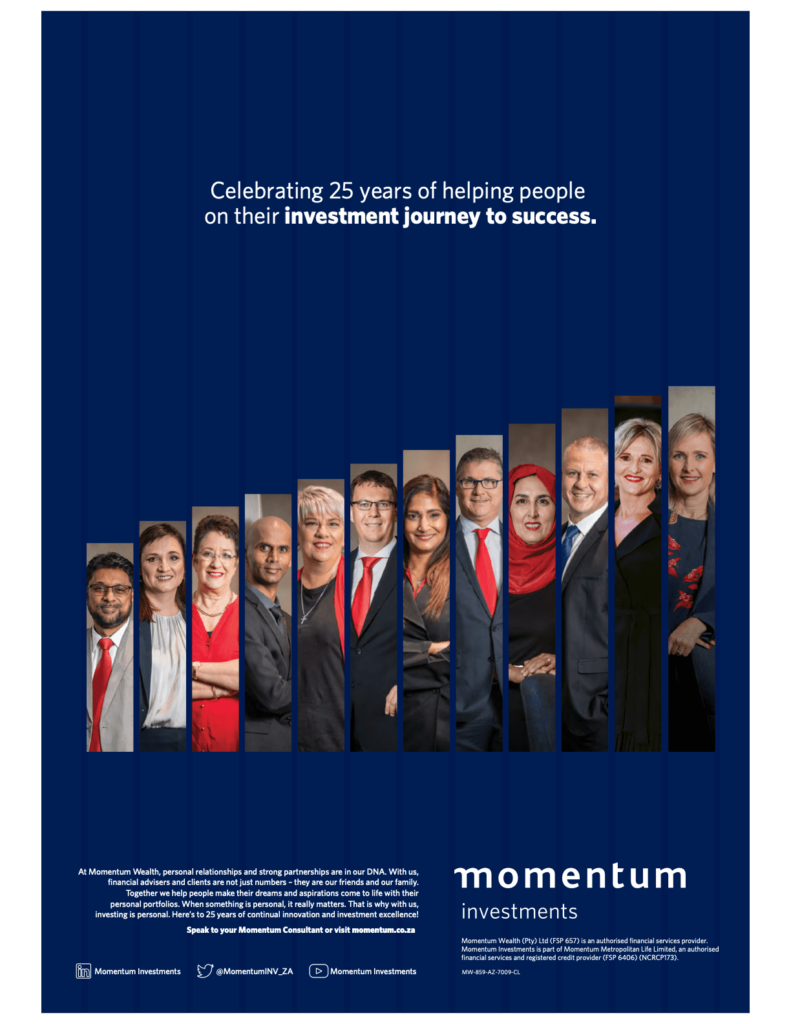Berniece Hieckmann, Head of Metropolitan’s new business unit
Shallow, yet deeply self-indulgent; wielding attention spans as short as their list of achievements while sporting an annoying penchant for GIFS, memes and trophies – never before has there been a generation as entitled as that of the millennial.
Ok Boomer.

When digging a little deeper into arguably the widest researched, yet paradoxically most misunderstood generation, this caricature is found to be precisely that; a lazy, blanket misrepresentation of a highly complex and nuanced group – one that currently represents 51% of the country’s workforce, or an approximate 12,6 million people.
I’ve been tasked with creating frictionless financial solutions aimed at younger clients, ‘GetUp’, and I recently spearheaded a deep-dive into this age category, drawing from anthropological and ethnographic research, trends and behavioural insights gleaned from big data.
The objective was to strip away the stereotypes in a quest to better understand this multi-faceted consumer, and – particularly given the size of this demographic – how we’re impacted as an industry.
The Millennial vs. the Afrillennial
The most salient insights were those not explicitly obvious at first glance. Most notably was the juxtaposition between the western millennial and the ‘Afrillennial’. You cannot simply extrapolate findings from research conducted into the western millennial and apply a local lens – there are distinct differences which give rise to an entirely new set of behaviours.
A key departure was that, while western millennials were found to be preoccupied with emancipation and autonomy, the same does not necessarily apply to Afrillennials, who remain family-centric – both by necessity and design.
Much has been made of South Africa’s ‘sandwich’ generation, where individuals are financially responsible for both their children and parents. This is not only due to financial inability on the part of older generations, but also evidence of South Africa’s ‘socialist heart’; there is deep-seated reciprocity, an innate subscription to the pivotal role of the family, which manifests as a sense of community not always evident in western culture.
The report also highlighted a fascinating duality; the ease with which an Afrillennial can navigate between traditional and modern life. While Afrillennials display patterns typical of their age group in how they assimilate information, they remain deeply culturally rooted and are at peace with this dichotomy.
They’re equally as comfortable donning traditional cultural regalia, as they are in Zara.
Information economy
Underpinning another millennial behavioural set was the evolving supply-demand economy of information.
In the case of Gen Xers and Baby Boomers, information was in higher demand than it was in supply. Older generations had to actively seek information, and so became accustomed to casting as wide a net as possible, ‘hoarding’ data and then processing it at a later stage in a mostly linear process.
Thanks to the proliferation of digital media, this supply-demand curve was upended. Access to information is no longer a challenge, and Gen Yers have adopted a ‘multi-threading method of processing: information is sought, scanned, rapidly processed and discarded, in a continuous, fast-moving and decidedly non-linear path.
Consider the implications of this rapid-fire processing. It impacts every aspect of life; from how you engage and interact, to even your concept of time.
Current societal structures have developed over time, built by generations not raised in the same supply-demand economy. This has numerous implications, most notably a rising dissonance in the schooling and education systems.
There needs to be an adaptive process to counter this misalignment. There is a great deal that we can learn from each other. While millennials are brilliant at rapidly processing information, Gen Xers, for example, are fantastic at building relationships.
What does this mean for the financial services industry?
The industry needs to adapt – and fast. There are a lot of learnings in terms of how – and the speed at which – consumers expect relevant information to be delivered, as well as their prioritisation of experiences over assets.
Financial services providers should consider the following:
- Omni-channel agility: Agility is needed in service channel design. We know that digital channels are preferred for convenience. However, research also shows that millennials favour virtual channels for interactive engagement, while in high stakes situations, they display a preference for face-to-face interactions.
- Personalisation and co-creation: Research by Accenture revealed that 67% of South Africans are loyal to brands that provide them with personalised offers. Millennials expect the customer experience to be tailored to them as individuals, and are willing to be co-creators in the product design process. Given the wealth of information that they make available about themselves through social media, they expect brands to know what they want – otherwise they’re prepared to take their business elsewhere.
- Lifestyle impacts product design: The financial services industry desperately needs to relook their product offering. Take insurance, for example. While we cannot disregard its importance in our landscape, is it as much a priority for a generation more concerned with living, than with dying?. Debt, on the other hand, is the lived reality for many millennials, and few people can afford to build an asset base without entering debt. How can we support consumers in consolidating bad debt and turning it into good debt? The trick lies in structuring a path that empowers one to pay off their financial commitments whilst acquiring an asset base, slowing the credit-debt cycle.
- Loyalty: The same Accenture report indicates that millennials differ significantly from other generations when it comes to the concept of loyalty – and South African consumers differ even further. Eighty-eight percent of South Africans are loyal to brands that protect their private information, while 52% are loyal to those that support a cause which they value. Thus it is imperative for financial services to constantly reevaluate their privacy policies, as well as consider where they focus community and CSI efforts.
It would appear that – despite what the memes tell us – millennials have no real aversion to ‘adulting’, after all.


